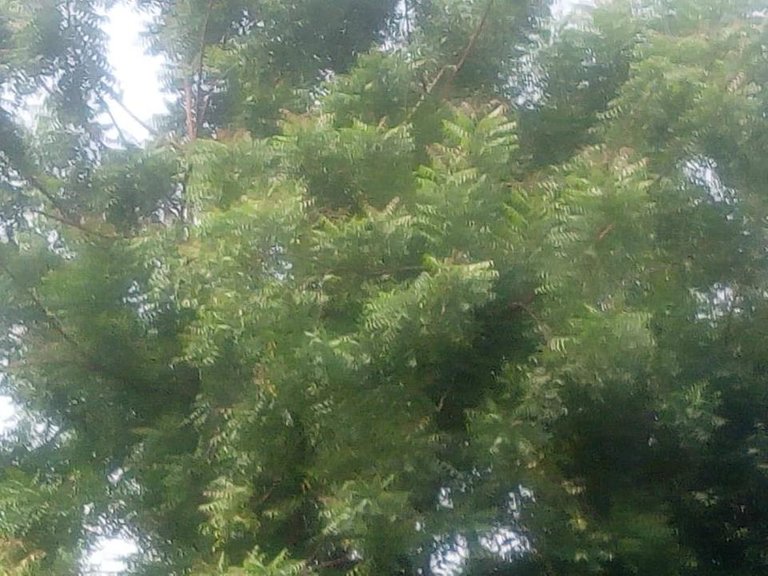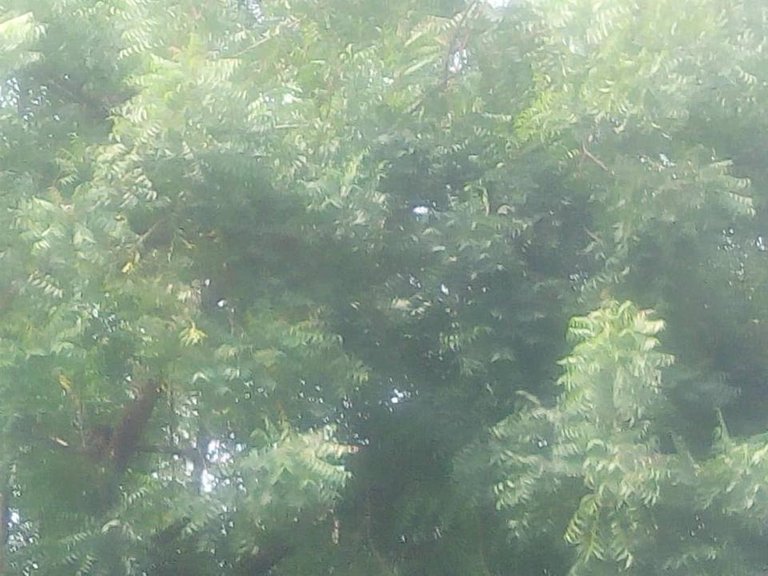This is going to be among the Simplest of CONTESTS to an extent. However, it is not really a contest, in general "contest" sense but an avenue to help everyone that sees it to learn something new if possible. The rules are very simple. The rules are:
- Identify the English and botanical names of the tree below ( you can include the native name in your language)
- Resteem This post and Comment your Answer.
- Write any relevant thing about the Plant In your comment. ( Health benefits, Nutritional Value, Economic Value e.t.c.)
- The Contest ends When The Right Answer Is Provided.
- Prize is 0.75SBDs, but I may change my mind if I see some nice entries about the plant. Do a little research. Get creative😀.
- The prize may go to multiple individuals if they write different relevant things about the plant.
- The Answer will be featured next Tuesday if no one gets it right after 48hours of this post.
I couldn't get very close to the Tree to take the shots. But you can easily identify the neem if you look very close at it.
I managed to get more than one shot with my phone.
It was very Sunny when I took the picture. 😁🙌😁. And I am far from being a professional neemed photographer. May be I will learn to be one someday with a more sophisticated Camera 😏.
HINT: The answer lies in knowing the plant only but can be deduced by some little research.
My signout message is:
See The Handwriting On The Wall...




Neem is also called Dogonyaro scientifically called AZADIRACHTA INDICA. It belongs to the family of Meliaceae.
Botanists say that Neem bear fruits after 3-5 years of planting and when fully matured that it can produce up to 50kg of fruits every year for at least 100 years. Amazing!
The various parts of Neem tree have one or more medicinal applications. Mostly known in Nigeria for its use in the treatment and management of MALARIA, Azadirachta indica leaves, flowers, fruits, seeds, seed oil, roots and bark however, can be employed for the treatment of malaria.
Talking about Malaria treatment, the leaves of Dogonyaro are boiled in most cases with lemon grass in water and the patient is asked to inhale the aromatic vapor/steam usually with a blanket cover all around him to induce profuse sweating. The patient simultaneously is asked to drink part of the herbal extract. Thereafter, he will bath with it.
Other uses and applications are for the treatment of DIABETES MELLITUS, SEXUALLY TRANSMITTED INFECTIONS , HAIR TONIC (seed oil application), BRONCHITIS , LOW IMMUNITY, SCABIES, ACNE, ULCERS, ECZEMA, RHEUMATISM, HEADACHES, HEPATITIS, CARDIOVASCULAR DISEASES, ALLERGIES and HERPES.
Research works have also shown Neem to posses HEPATOPROTECTIVE (liver protection) , ANTIBACTERIAL , ANTIDIABETIC, ANTIFUNGALl, ANTIVIRAL and anti-malarial properties.
More details from http://healthbubbles.com
Congrats, you got it right. You will get your reward asap 🙌
Yeah... Super excited!
Thanks!!
:) You are welcome
Hola @emjoe la imagen se ve dudosa pero para mi este es el árbol de Nim, este es un árbol de crecimiento muy rápido, es robusto, frondoso, sus hojas son perenne y verdes, aquí la utilizan como espanta mosca porque su extracto actúa en los insectos, como antialimentario, ocasionándoles la muerte.
English please :)
Hello @emjoe the image looks doubtful but for me this is the tree of Nim, this is a very fast growing tree, it is robust, leafy, its leaves are perennial and green, here they use it as a fly scare because its extract acts in the insects, as antifeedant, causing their death.
I think you got it right, although the spelling for "NiM" is different from what I saw online. You will be rewarded too. 🙌
Hello @emjoe the image looks doubtful but for me this is the tree of Nim, this is a very fast growing tree, it is robust, leafy, its leaves are perennial and green, here they use it as a fly scare because its extract acts in the insects, as antifeedant, causing their death.